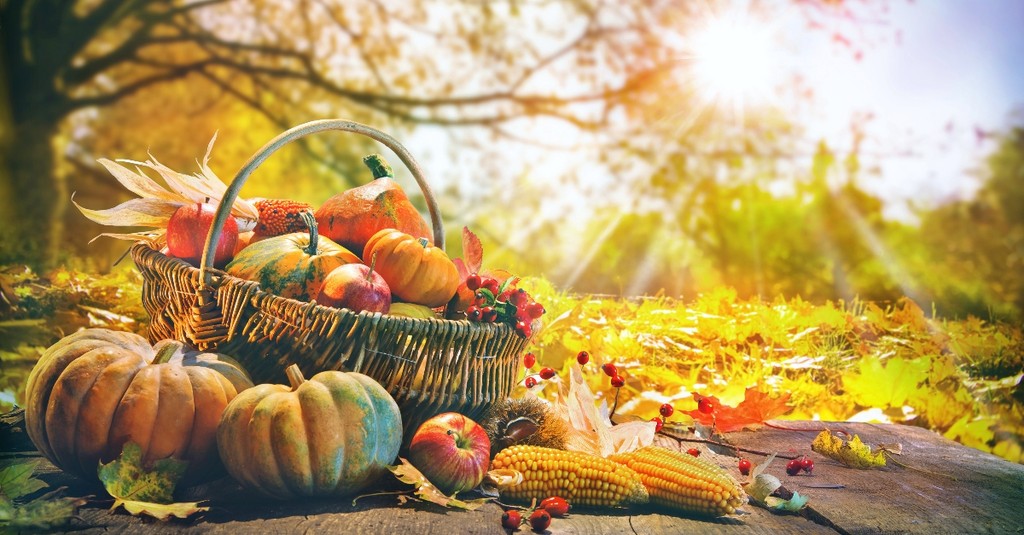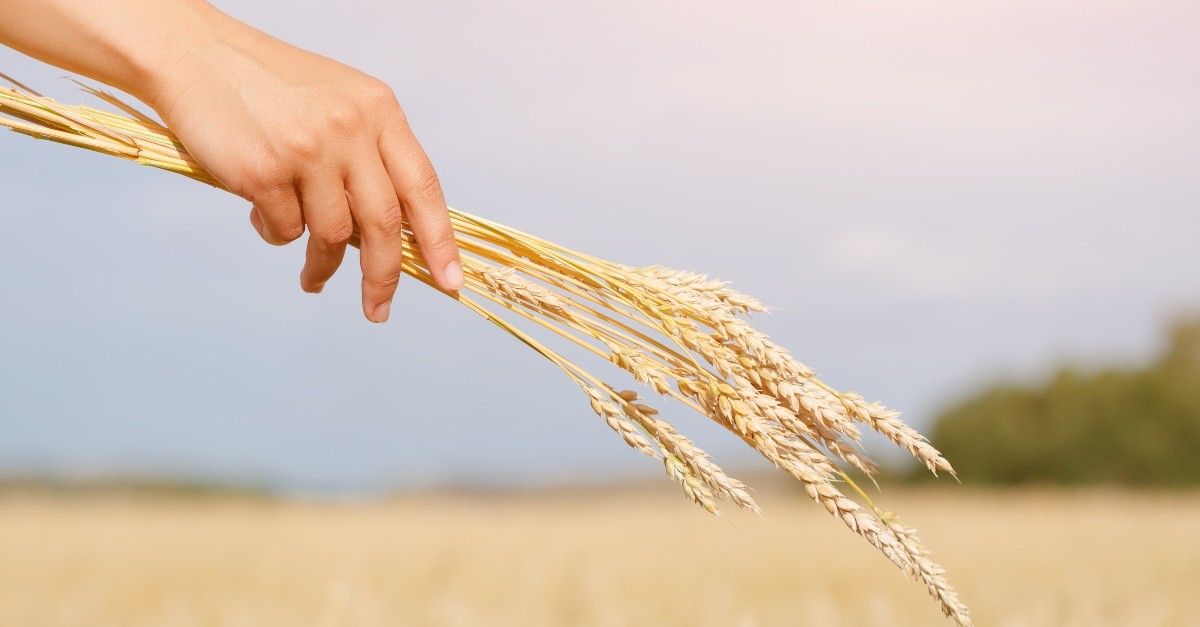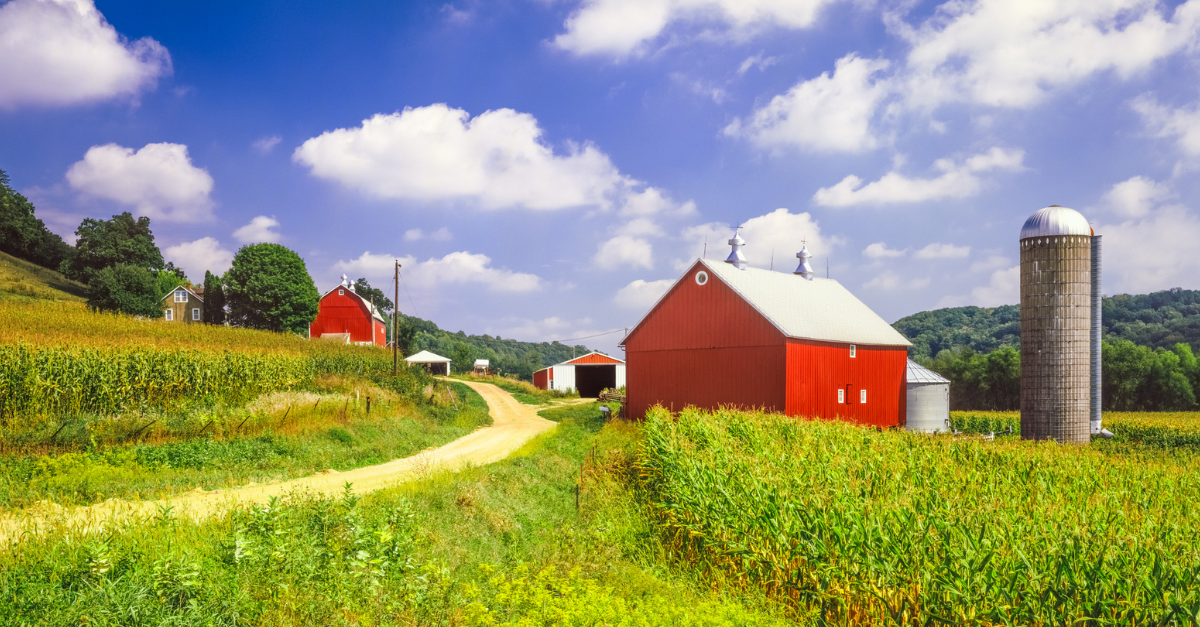
Driving through country roads in autumn, you will likely see swaths of cornfields ready for harvest or rolled stacks of hay drying in the sun. The fields almost look as if they came from an old painting, from a time when people rode wagons or traveled on foot to reach their destinations. A person could even imagine neighbors visiting with tin buckets in tow, a crate of apples, and plenty of corn to celebrate a fall festival near the piles of hay.
Harvest is a time of reaping the fruit of one’s work and celebrating that fruit with others.
As Christians, we can learn from this season since God has imbued His creation with His glory, traits from which we can glean insights (Psalm 19:1; Romans 1:20). If we are willing to look and listen closely, we might better understand what nature can teach us.
What can we learn from the work of the harvest, the stalk of corn, or the celebration that comes with sharing the fruit of the fields? The following six points provide us with biblical lessons from an autumn harvest.

1. Periods of Waiting are Essential for Growth
Time-lapse videos of plants growing and producing flowers are fascinating to watch. As if by magic, over the course of a few seconds, the bulb grows until it bursts into life, unfolding its delicate petals. Yet, in real life, the process takes much longer. If we ventured outside each day to check on the growth of flowers or vegetables, we might eventually notice indications of growth, but much of it will be indiscernible–we cannot see the seed’s production of a root system or the intricate inner workings of the plant. And its physical growth above the soil is not always overt.
A fall harvest cannot come without the period of waiting for plants to grow to maturity and bear fruit. If we tried to skip all the steps of planting, watering, weeding, and waiting, we would not have anything but a handful of seeds. God could have made it so that nature automatically produced great fields of food, ripe and ready to eat. But he did not, and that is a lesson we can learn from: growth (and harvest) takes time.
Scripture tells us that we are meant to bear spiritual fruit as Christ’s disciples (John 15:5, 8; Colossians 1:10). This is produced in us through the Holy Spirit but also requires us to submit to His work (Galatians 5:22-23). At salvation, we do not become instantly patient, loving, or kind. Rather, the Holy Spirit begins to work, cultivating these attitudes in our lives, which eventually bear fruit.
Growth is vital to the Christian life, and as such, we must learn the value of being patient in the process. Sometimes the greatest fruit will come through the small, daily advances in Christlikeness, which might be indiscernible to us and others. However, when we take the long view of our discipleship, knowing we are gradually moving toward the future glory of being conformed to the image of Jesus, we will better discern God’s patient work in us (Romans 8:29; 2 Corinthians 3:18).
Photo Credit: © Getty Images/Mikhail Azarov

2. At Times, Plants Must Die to Reproduce
Seeing the dry husks of flower heads is not usually pleasant. What once was crowned in glory has shriveled up and died. Yet, buried in those flower heads are seeds, which once planted, will multiply to produce multiple other flowers. The death of a single flower has the potential to bring about new life.
This picture of shriveled flower heads containing seeds mirrors what Christ said to His disciples: “I tell you the truth, unless a kernel of wheat is planted in the soil and dies, it remains alone. But its death will produce many new kernels—a plentiful harvest of new lives” (John 12:24, NLT). Our Lord spoke of this truth when predicting His coming death, for the Son of God gave Himself to die on the cross to bring us life.
The metaphor of a seed being planted also applies to the Christian life. True success comes when we are willing to give up our lives for others, not loving our lives and the world so much that we grasp onto them. Discipleship, in its very essence, is death to self (Matthew 10:38-39). This is not merely to stand as lone husks, but to reproduce and bring about a spiritual harvest. Our Lord gave His life for us, and we should be willing to do the same for others (John 15:12-13; 1 John 3:16).
So, let the wheat, flowers, and other plants remind us of our Savior’s teaching and sacrifice. Death is often the gateway to new life.
Photo Credit: ©Getty Images/Evgeniia Siiankovskaia

3. Others Can and Should Be Blessed Through Our Harvest
During Old Testament times, God instructed the Israelites to intentionally leave behind some of their harvest instead of gleaning again to retrieve what was missed. This would provide food for orphans, widows, those in poverty, and foreigners since they could collect what the harvesters did not reap (see Deuteronomy 24:19-21 and Leviticus 23:22). The Lord knew that the sinful human inclination would be to hoard every extra crop, even if the owner of the fields had more than enough. Hence, God gave this command to the people so they would keep the good of others in mind, especially the most vulnerable of society.
Even when we think of people harvesting crops in the modern age, we think of farmers around the world who grow wheat, rice, corn, and other crops that are used to feed the global population. Their work affects many people, extending the impact to those beyond their immediate family or neighborhood.
From nature and the Bible, we find that others can and should be blessed through our harvests. In the Old Testament, this applied to literal crops. Boaz, for example, was a wealthy man who ensured his workers were cared for and who intentionally left crops for the poor and foreigners (including Ruth the Moabitess). However, in the modern day, this principle most often applies to our resources. People reap benefits from their jobs, relationships, interests, and use of time. How they share that harvest with others is important in their walk with Christ.
We might not have a field of wheat with which to share with others. We might not even be that well-off in terms of societal standards. But we can share what we have (i.e., our time, money, and lives) with others, blessing them from the abundant love Jesus has given us.
Photo Credit: ©Getty Images/Design Pics/Kristy-Anne Glubish

4. The Harvest Is Plentiful, but the Workers Are Few
Jesus compared the work of the kingdom to a harvest. Just as laborers are needed to gather the crops from the field, so also workers are needed to declare the good news to others and welcome the lost. In context, Jesus spoke of the need for laborers when sending out the seventy-two disciples (see Matthew 9:35-38 and Luke 10:1-4). His words still apply since His commission to make disciples of all nations applies to every believer (Matthew 28:18-20).
The common Western perspective often focuses on the need for individuals to volunteer as laborers. We can sometimes consider ourselves the rare workers who strive to make Jesus known on our own. Yet, people harvest more abundantly when they work together. Jesus, after all, sent out seventy-two disciples in groups of two (Luke 10:1). And we often find the Apostles doing the same after Jesus’ ascension and the giving of the Holy Spirit, such as during Paul’s missionary journeys when he traveled with Barnabas, Timothy, or Silas. Christians should be willing to engage in kingdom work, but they were never meant to do so alone.
We should pray, as our Lord commanded, for more laborers to work to proclaim the good news of Christ and make disciples, and we should be willing to do the work ourselves. However, we should never forget that Jesus established for Himself a bride, the church, to work together and make Him known. Our participation in harvest work should be done in connection with the community of believers.

5. Feasting Is an Act of Praise
One of the hallmarks of the fall harvest is the act of celebration. People enjoy fairs with rides, agricultural competitions, and unique food. Likewise, local festivals often celebrate specific products of the harvest, such as apples or pumpkins. Or individuals may participate in a stew or soup festival, appreciating the warmth as temperatures drop. Regardless of the form of celebration, food is usually involved.
In the Bible and in church liturgy, feasts take on greater meaning. Food is usually involved, yes, but the event marks a special occasion and serves as a time to remember. For example, the Lord gave Israel feasts to remember key events in their history, such as the Passover when the Lord struck down the firstborn Egyptians but preserved the life of the Israelites (Exodus 12:25-27), or the Feast of Tabernacles to commemorate the time they lived in tents in the wilderness after the Lord brought them out of Egypt (see Leviticus 23:33-44). The church continues this tradition by observing special days in honor of events in salvation and Christian history, like Christmas and Easter.
Even on days that are not designated as holidays, celebrating with a feast in gratitude to the Lord is an act of praise. We remember the goodness of the Lord and His provision. And we receive the reminder that in the future, we will celebrate the great marriage feast of the Lamb (Revelation 19:6-9).
The roasted corn, slice of pumpkin pie, or chicken stew may look common, but when we gather with others to give thanks to the Lord, these simple food items are transformed into a God-honoring feast that points to the joy of eternity.
Photo Credit: GettyImages/AlexRaths

6. Harvesting Provides a Picture of What Will Happen at Jesus’ Return
Jesus told a story about harvest time, about a man who sowed good seed but an enemy mixed weeds into the planting of wheat (see Matthew 13:24-30). Instead of pulling up the weeds and harming the growing wheat, the man told his servants he would wait until harvest. Then, the weeds would be pulled and burned.
This agricultural parable was about the future harvest at the end of time, which was complemented by the parable of the net. Both reveal to us that on that day of Christ’s return, He will send His angels to sift through the good and bad (Matthew 13:40-41). As He said, “The angels will come and separate the wicked from the righteous” (Matthew 13:49, NIV). Similar to how the man removed the weeds from the wheat, the Lord will instruct His angels to divide believers from unbelievers. The Olivet Discourse describes this event as a time when the elect will be gathered by angels from every corner of the world (Matthew 24:31).
Each harvest on earth, in which good crops are distinguished from bad ones, provides a mini picture of Christ’s return. Though the seeds sown by the evil one seemingly flourish now, the weeds will not endure. On that day, everyone will know who belongs to Christ, as they will be part of the harvest of the Lord, gathered for His glory.
Photo Credit: ©Getty Images/Ron and Patty Thomas

Originally published Monday, 06 October 2025.
